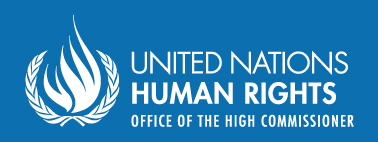GENEVA (14 June 2021) – (source OHCHR) UN human rights experts* said today they were extremely alarmed by reports of alleged ‘organ harvesting’ targeting minorities, including Falun Gong practitioners, Uyghurs, Tibetans, Muslims and Christians, in detention in China.
The experts said they have received credible information that detainees from ethnic, linguistic or religious minorities may be forcibly subjected to blood tests and organ examinations such as ultrasound and x-rays, without their informed consent; while other prisoners are not required to undergo such examinations. The results of the examinations are reportedly registered in a database of living organ sources that facilitates organ allocation.
“Forced organ harvesting in China appears to be targeting specific ethnic, linguistic or religious minorities held in detention, often without being explained the reasons for arrest or given arrest warrants, at different locations,” they said. “We are deeply concerned by reports of discriminatory treatment of the prisoners or detainees based on their ethnicity and religion or belief.
“According to the allegations received, the most common organs removed from the prisoners are reportedly hearts, kidneys, livers, corneas and, less commonly, parts of livers. This form of trafficking with a medical nature allegedly involves health sector professionals, including surgeons, anaesthetists and other medical specialists.”
UN human rights experts have previously raised the issue with the Chinese Government in 2006 and 2007. Unfortunately, the Government responses lacked data such as waiting times for organ allocation, or information on the sources of organs. In this context, the lack of available data and information-sharing systems are obstacles to the successful identification and protection of victims of trafficking and effective investigation and prosecution of traffickers.
Another UN Human Rights mechanism has also highlighted concerns about the practice of removing organs from prisoners of a certain religious minority.
“Despite the gradual development of a voluntary organ donation system, information continues to emerge regarding serious human rights violations in the procurement of organs for transplants in China,” the UN experts said.
Concern remains at the lack of independent oversight as to whether the consent to donation and organ allocation is effectively given by prisoners or detainees. It is also reported that families of deceased detainees and prisoners are prevented from claiming their bodies, they said.
The experts call on China to promptly respond to the allegations of ‘organ harvesting’ and to allow independent monitoring by international human rights mechanisms.
The Special Procedures mandate holders have been in contact with China to strengthen dialogue. They would like to continue this constructive engagement with the Government of China.
ENDS
*The experts: Ms. Siobhán Mullally, Special Rapporteur on trafficking in persons, especially women and children; Ms. Tlaleng Mofokeng, Special Rapporteur on the right of everyone to the enjoyment of the highest attainable standard of physical and mental health;Mr. Fernand de Varennes, Special Rapporteur on minority issues; Mr. Ahmed Shaheed, Special Rapporteur on freedom of religion or belief; Mr. Nils Melzer, Special Rapporteur on torture and other cruel, inhuman or degrading treatment or punishment; Ms. Dubravka Simonovic, Special Rapporteur on violence against women, its causes and consequences;Ms. Fionnuala Ní Aoláin, Special Rapporteur on the promotion and protection of human rights and fundamental freedoms while counter-terrorism; Ms. Elina Steinerte (Chair-Rapporteur), Dr. Miriam Estrada-Castillo (Vice-chairperson), Ms. Leigh Toomey, Mr. Mumba Malila, Mr. Priya Gopalan, Working Group on arbitrary detention.
Special Rapporteurs are part of what is known as the Special Procedures of the Human Rights Council. Special Procedures, the largest body of independent experts in the UN Human Rights system, is the general name of the Council’s independent fact-finding and monitoring mechanisms that address either specific country situations or thematic issues in all parts of the world. Special Procedures’ experts work on a voluntary basis; they are not UN staff and do not receive a salary for their work. They are independent from any government or organization and serve in their individual capacity.



